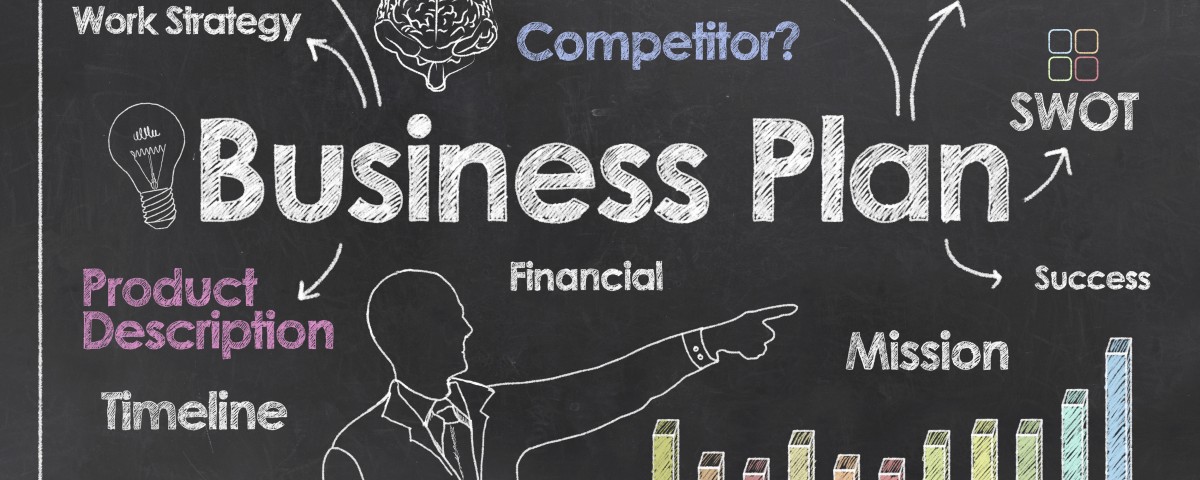Business Survival Planning for the Sole Proprietor
Business Survival Planning for the Sole Proprietor

If you’re a business owner, the thought may have crossed your mind: “What will happen to my business when I die?”
To answer this question, begin by examining the issues of a closely held business in your estate. Planning generally involves three areas: administration of your business during the estate settlement period; continuation of your business after your estate has been settled; and taxes and related estate settlement costs.
In general, there are three forms of business organization favored by solo business owners: sole proprietorship, partnership, or corporation. Let’s take a look at the possible advantages and disadvantages, as well as planning opportunities, of the sole proprietorship.
The Pros and Cons
A sole proprietorship is a business entity owned and managed by one person. Simplicity is one of the major advantages of this form of business. No completed articles of incorporation need to be prepared, and there are few administrative costs associated with starting the business. However, if the business is conducted in a name other than that of the owner, most states require that the name of the business and owner be filed as a matter of public record.
Another advantage of the sole proprietorship is the flexibility and freedom of action enjoyed by the owner. There are no associates to consult when making business decisions. Unlike a corporation, the owner’s activities are not limited by statutes, corporate charters, or bylaws. In addition, the owner of a sole proprietorship is entitled to all profits generated by the business.
On the other hand, there may be a distinct disadvantage to the sole proprietorship when trying to continue the business after the death of the owner. In the absence of specific arrangements for continuation, the business ends and its assets and liabilities become the assets and liabilities of the owner’s estate. Many states have enacted statutes that authorize the executor or administrator to continue the business temporarily, in order to avoid loss to the heirs. However, application must be made to the court for continuing the operation of the business. Anyone who does so without authority may be liable for any losses or expenses, even if he or she was acting in good faith.
Continuation Planning: Provide for the Future
If a sole proprietor does not want to change the form of his or her business, but does want the business to continue after his or her death, planning concerns involving the administration of the business both during and after the estate settlement period need to be addressed. The proprietor’s will may give the executor certain powers during the period of estate administration: 1) the power to retain the business interest indefinitely; 2) the power to do everything possible to operate the business successfully; 3) the power to reorganize the business, incorporate it, or merge it with another business; and 4) the power to borrow money, if necessary, to help the estate meet its liquidity needs.
In addition to these discretionary powers, the will may also include a provision that relieves the executor of personal liability where duties are exercised in good faith. In order to help minimize potential problems, the assets and accounts of the sole proprietorship may be placed in a trust with the trustee granted authority to continue the business during the applicable period.
Regardless of the form of business organization, there is often the need for adequate cash to pay funeral and administration expenses, personal and business debts, and possible estate taxes. It is important to remember that directions in the will permitting continuation of the business will not be allowed to interfere with the right of existing creditors and tax collectors to settle their accounts when the proprietor dies.
One tool to help ensure the estate has the cash needed to settle its affairs is life insurance. The proceeds of a life insurance policy can help provide liquidity to pay bills, supplement income for family members, and facilitate the continuation of the business. The insurance policy may be owned by an irrevocable trust to protect the proceeds from taxation as part of the business owner’s estate.
As a sole proprietor, the continuation of your business may be of prime importance to you. Your qualified financial, tax, and legal professionals can help you develop estate planning strategies to allow your business to continue in the event of your death.
Educating Your Employees about Their 401(k) Plan
401(k) plans can offer employees an excellent means to save for retirement. However, workers may pass up the opportunity to participate in their company plans because the information presented may seem difficult to understand. To engage your employees and educate them about the benefits of your plan, the information sessions should be prepared carefully. With a little effort, you can increase the effectiveness of these presentations and boost participation in your company’s 401(k) plan.
Prepare employees before the presentation. Assume your employees have little money management experience. Treat them as you would prospective customers. When announcing the information session, explain what they will learn and why the information is important to them. Emphasize how they can benefit from attending the session.
Keep the tone light. A little humor goes a long way in holding an audience’s attention. Encourage presenters to use clear, simple language—avoiding “legalese,” jargon, and complicated charts and graphs. Money management tips and worksheets can be helpful. Remember to leave plenty of time for questions and answers.
Sit in on the session. Doing so will allow you to ensure that the information presented is fair, accurate, and understandable. It also demonstrates to your employees the value you place on the retirement plan.
Target your audience. Avoid the “one size fits all” presentation. Gear the material to the audience’s level of knowledge. If your workforce includes both new and experienced participants, consider offering two presentations and allowing your employees to choose the one that is most appropriate for their needs.
Demonstrate how a 401(k) plan can make saving for retirement easier. Many employees may believe that they do not have the excess income to contribute to a retirement plan. A skilled presenter can address this concern by emphasizing the potential tax benefits of a 401(k) plan. With a few simple calculations, your employees will see that once tax savings are considered, their contributions may not take as much out of their paychecks as they might have thought.
Support your employees in keeping their contributions at a comfortable level. Avoid overemphasizing the need to contribute the maximum amount allowable if that exceeds an employee’s financial ability. Point out that even a small contribution is better than none, especially if the company is matching all, or a portion, of it. Reinforce that it is far better for employees to start small now and increase their contributions later, when they can afford to do so.
A well-crafted 401(k) plan presentation can go a long way toward boosting participation rates in your company’s retirement plan. By targeting the information session to your employees’ needs, you can help them make the most of their retirement plan option. Get in the habit of scheduling a company-wide 401(k) presentation at least once a year. More frequently scheduled informational sessions can help make the plan accessible to new hires, as well as provide an opportunity for current 401(k) participants to consider changing the level of their contributions.
The Economics of Space: Buying vs. Leasing
hen a business outgrows its office space or needs to relocate, the owner (or owners) must weigh the benefits of buying vs. leasing. As you decide whether to rent or own, it is important to look beyond the market conditions to the specific needs of your business in both the short and long term. Although property typically appreciates in value and can be a great investment over time, leasing avoids the financial challenges and management responsibilities that come with ownership.
To Rent or Own?
Whether you build or find a preexisting space, you have the most control if you own the property and are not bound by the constraints of a lease. Landlords often limit the ways in which a space can be altered. Such restrictions can be frustrating for companies anticipating or experiencing growth. One compromise may be to lease unfinished space with the freedom to design and build the interior to suit your business’s needs.
Leasing offers the flexibility of a short-term commitment if you feel your space requirements may change in several years. Property ownership, on the other hand, carries more financial risk. Real estate is a relatively illiquid asset and subject to market fluctuations. The need to sell in a soft market could be costly. If you rely on income from leasing, you become subject to occupancy risk. If you own in an area with an abundance of commercial space, tenant income may be unreliable.
Many landlords use rental income to cover property management and maintenance costs. If you are a tenant, you are free from these responsibilities, but pay for operating expenses. If you are an owner, you are responsible for the “landlord duties,” but avoid leasing overhead.
Over the long term, owning property typically has greater financial potential than leasing. However, in the short term, renting has its advantages in the lower initial outlay of cash. The cost of several months’ rent and a security deposit is generally easier on cash flow than a substantial down payment for property or an outright purchase.
For tax purposes, rent is deductible as a business expense. The tax benefits for property ownership occur over time and may include annual depreciation and interest-paid deductions.
Ownership Considerations
For small business owners, the real estate equity that accumulates over time can lead to valuable planning options, but there are important considerations if you share ownership of your business. Depending on the structure of ownership, complex valuation and buy-out issues may result when partners leave or retire. In certain instances, the company could be at risk. For example, suppose a retiring partner wants to cash in on his or her equity interest as a source of retirement income. Without prior planning, this demand could place a significant financial burden on the business.
The best choice regarding buying or leasing will depend on many factors, particularly your company’s short- and long-term objectives. Be sure to consult with the appropriate tax, legal, and financial professionals for specific guidance.
How to Evaluate Your Accounting Practices
Managing the books well and maintaining accurate, organized records can help you keep your business in tip-top financial shape. On the other hand, less-than-stellar accounting practices can cause an otherwise sound business to falter. It can hinder cash flow, sour relationships with vendors and customers, open the door to fraud, and create tax problems. Here are some key areas to assess to determine the efficacy of your company’s accounting systems and controls:
Selective Benefits
Accounts Receivable. Are your daily receivables within industry averages? To get a true picture, chart monthly figures to reveal abnormalities or negative trends. Have you benchmarked your bad debt ratio? Is there a process in place for management to review write-offs and refunds? Do you have processes and controls in place to ensure all payments received are promptly deposited in the bank?
Accounts Payable. Are controls in place to avoid double payment when a vendor sends both invoices and statements? Do you have clear policies that determine valid company expenses, and what documentation is required prior to reimbursing employees or contractors? Are responsibilities delegated so that the person who approves invoices is not the same person who issues and/or ultimately signs the check? Is your company’s cycle time fast enough to take advantage of prompt pay discounts?
Accounting Systems. Many companies have dual-entry accounting systems, but not all take advantage of their systems’ functionality. Are there enough accounts to obtain a clear understanding of the business’s cash flow? Do your employees perform a lot of “off-the-books” accounting on spreadsheets? While spreadsheets are great for planning and analysis, they often lack the all-important audit trail.
Corrections and Revisions. Some corrections or revisions are expected, but if they are becoming the rule rather than the exception, it is time to look at the overall integrity of your accounting system.
Time to Close. How long does it take to close the books each month? Is it within the typical range for a company of your size? Lengthy closing times may indicate inefficient accounting processes, making it impossible to assess the financial state of the business in a timely manner.
Reports. Are you aware of the variety of reports available from your accounting software? Do your monthly reports provide the information you need to run the business? Are data in the reports reliable?
As you fine-tune your practices, choose systems that are appropriate for your business needs. Take the time now to ensure that your accounting practices are up to snuff. It can pay off in the long run.



